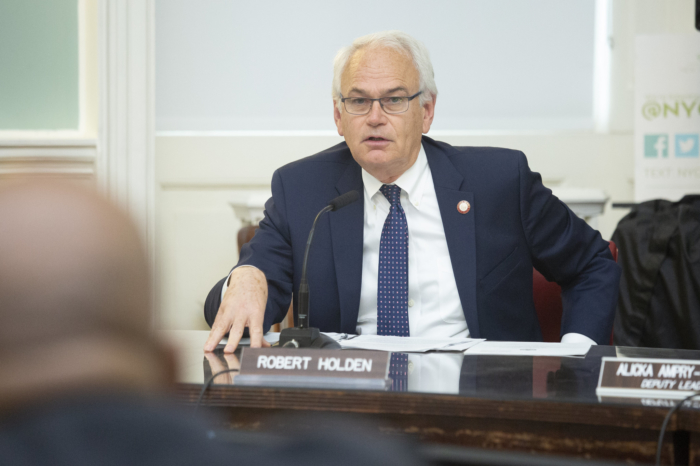By William Lewis
Here in New York state, we have been using voting machines for at least the last 70 years. When these machines came into use, it was heralded as an end to voting fraud, since votes would now be counted by the voting machines instead of by hand. There seemed to be little possibility of mistakes in counting the ballots.
That, of course, has not always been the case with periodic machine failures.
As the recent Iowa caucus showed, American democracy takes different forms in so far as voters at the Iowa caucus voted by paper ballot and deposited these ballots in a box in front of poll watchers. When all the votes were cast, the ballots would be hand-counted and the results announced.
This procedure was almost the same as most voting done a hundred years ago. It is important to note that the election results were known at the end of the evening, when former Massachusetts Gov. Mitt Romney was announced as the caucus winner by eight votes.
There were no absentee ballots to worry about. When we observe this type of voting, it invokes an old cliche: The more things change, the more things stay the same.
It is difficult to imagine an election primary called a caucus in which no voting machines or computers are used to any great extent, but based on the Iowa system, it seems the results were achieved efficiently and speedily.
Pertaining to various presidential primaries and caucuses in some states, such as New Hampshire, independent voters are permitted to vote in Republican and Democratic party primaries.
In New York state, independent voters are not allowed to vote in such primaries. The argument could be made that having independents vote in political party elections defeats the purpose of those elections, since if people not affiliated with a specific party can vote in their primaries, the results of the elections are not a true picture of the party viewpoint.
It should also be mentioned that most independents who are voting in Republican and Democratic primaries are not active members of those political parties and contribute little to the building of these party organizations. In some states where independents were allowed to vote in party elections, it was thought that by voting with a particular party it would encourage them to become members of that party.
Just the opposite, however, has occurred. There has been in recent years a continual increase in the number of registered independents.
This matter has not become a political issue in New York state. Our state legislators have been united in maintaining the integrity of our political system, which means only registered members of a political party can vote in party primaries.
The results of the New Hampshire primary gave a decisive win to Romney, who followed up with a victory statement to his supporters. If he also wins decisively in the South Carolina primary, it will look like he is on his way to the Republican nomination for president of the United States.
When we analyze some of the advantages Romney has going into the primary season, he has name recognition, having run four years ago, in addition to his spending much of the last four years since 2008 in preparation for this presidential run.
He has considerable financial resources and has built an impressive campaign organization, especially in the early primary states. He is also a good public speaker and has a growing list of endorsements. He seems to demonstrate command presence or, to put it another way, is perceived as being presidential.
In 1968, his father, George Romney, intended to run for president but dropped out shortly before the New Hampshire primary due to low polling results. Today, his son has made a significant comeback.
If Romney is the Republican candidate and runs against Democratic President Barack Obama this year, it promises to be an interesting and historic campaign.
































